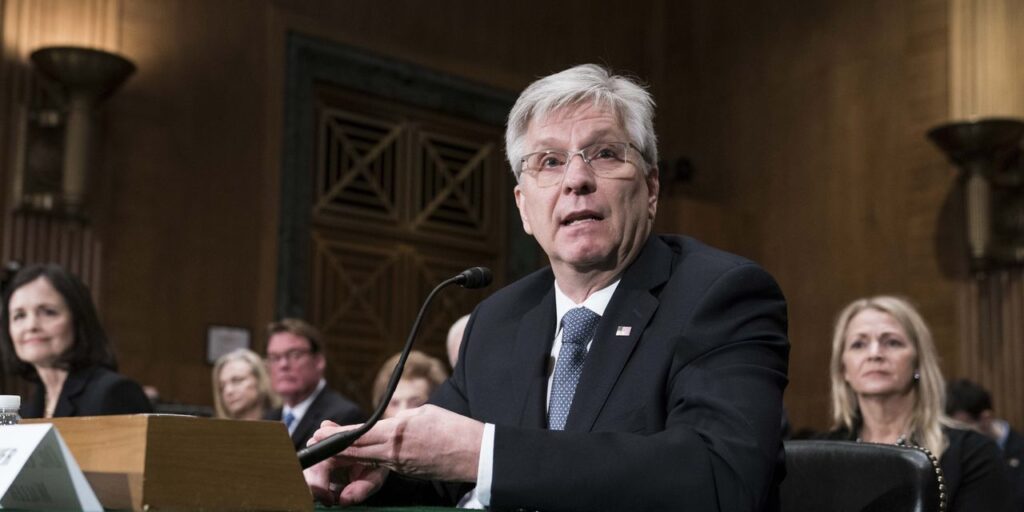The recent run-up in Treasury yields is doing some of the Federal Reserve’s job of slowing the economy down, said Fed Governor Christopher Waller on Wednesday.
“Financial markets are tightening up and they’re going to some of the work for us,” Waller said in a conversation with former House Speaker Paul Ryan.
The Fed is going to keep a “close eye” on this dynamic “and we’ll see how these higher rates feed into what we’re going to do with policy in coming months,” he said.
Waller said the situation was similar to the beginning of the year when the economy was strong and the Fed thought it was going to have to raise interest rates higher to slow things down and bring down inflation.
Then, in March, Silicon Valley Bank collapsed and the Fed thought that this would tighten financial conditions and slow the economy — obviating the need for rate hikes.
When this expected credit crunch didn’t materialize by the summer, the Fed went back to projecting more rate hikes, Waller said.
On the outlook for the economy, Waller said the Fed has been getting “very good inflation data” and if that trends continue, inflation would return to the Fed’s 2% target. Adding to this have been signs that wage growth is softening.
At the same time the economy is “really booming” with U.S. GDP potentially up above a 4% rate in the July-September quarter, he said.
“The real side of the economy seems to be doing well – the nominal side is going in the direction we want, so we’re in this position where we kind of watch and see what happens on rates,” he said.
“All this economy data was coming in looking like the infamous soft landing would actually hold, which is good for the economy,” Waller said.
Asked if there was an impact on monetary policy from the intense conflict in Israel and the Gaza Strip, Waller replied “it is very hard for me to make a direct link to it” unless the conflict broadens and subsequently chills business and consumer confidence.
He pointed to Russia’s invasion of Ukraine in February 2022, which had some effects initially, “but now we don’t really see a whole lot” of impact.
U.S. stocks
DJIA
SPX
were higher on Wednesday even after the Labor Department reported pick up in producer prices in September. The 10-year Treasury yield
BX:TMUBMUSD10Y
was down 7 basis points to 4.59%.
Read the full article here











